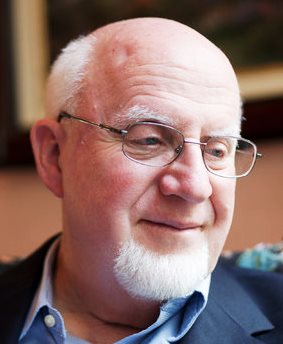
The Hebrew verb translated “atone” in the Old Testament is kaphar. The word originally meant “to cover” or possibly “to wash away,” but by biblical times it simply meant “to forgive.” Leviticus 16 tells what it looked like when God removed the guilt of Israel’s sin from them and removed the stain of their sin from his sanctuary. For New Testament writers it is a drama in which Jesus himself plays all the parts. He is the temple, the high priest, the atonement-sacrifice, and, in Romans 3:25, the Mercy-Seat or Atonement-Place.
The script for the original drama is recorded in Leviticus 16 and features two goats. One will live. One will die. The high priest washes his body and puts on holy linen garments. He slaughters a bull as a sin offering for himself and his family, and takes some of its blood through a cloud of incense smoke into the most holy place. He sprinkles the blood on and in front of the top-piece of the Ark of the Covenant known as the “mercy seat” (literally the “atonement-place”), and goes back outside. He takes the goat chosen to die and kills it as a sin offering for all the people, takes some of its blood inside the most holy place and repeats the ritual he had just performed with blood of the bull.
The high priest turns to the living goat. Laying his hands on the animal’s head, he names the sins committed by Israelites during the previous year–transferring their guilt to the living goat. Someone selected for the task leads the sin-laden goat out of the camp into the wilderness, turns it loose, and returns to the camp. The high priest and his helpers have accomplished two tasks. With the dead goat’s blood, they have cleansed the most holy place, “sanitizing” God’s house from the moral pollution of Israel’s sin (Lev. 16:16). With the living goat’s banishment, they have witnessed the removal of their own guilt–their sins have been taken far away (Lev. 16:22).
Jesus prepared his sacrifice throughout his life, gave it on the cross, and formally presented it to God after he arose and ascended into heaven. By that sacrifice, Jesus has cleansed our consciences, washed away our guilt, and removed the stain of our sins from the heavenly sanctuary itself. Now he sits at God’s right hand as our king and priest until all that opposes him has been put down and the time arrives for him to restore all creation to its intended glory.